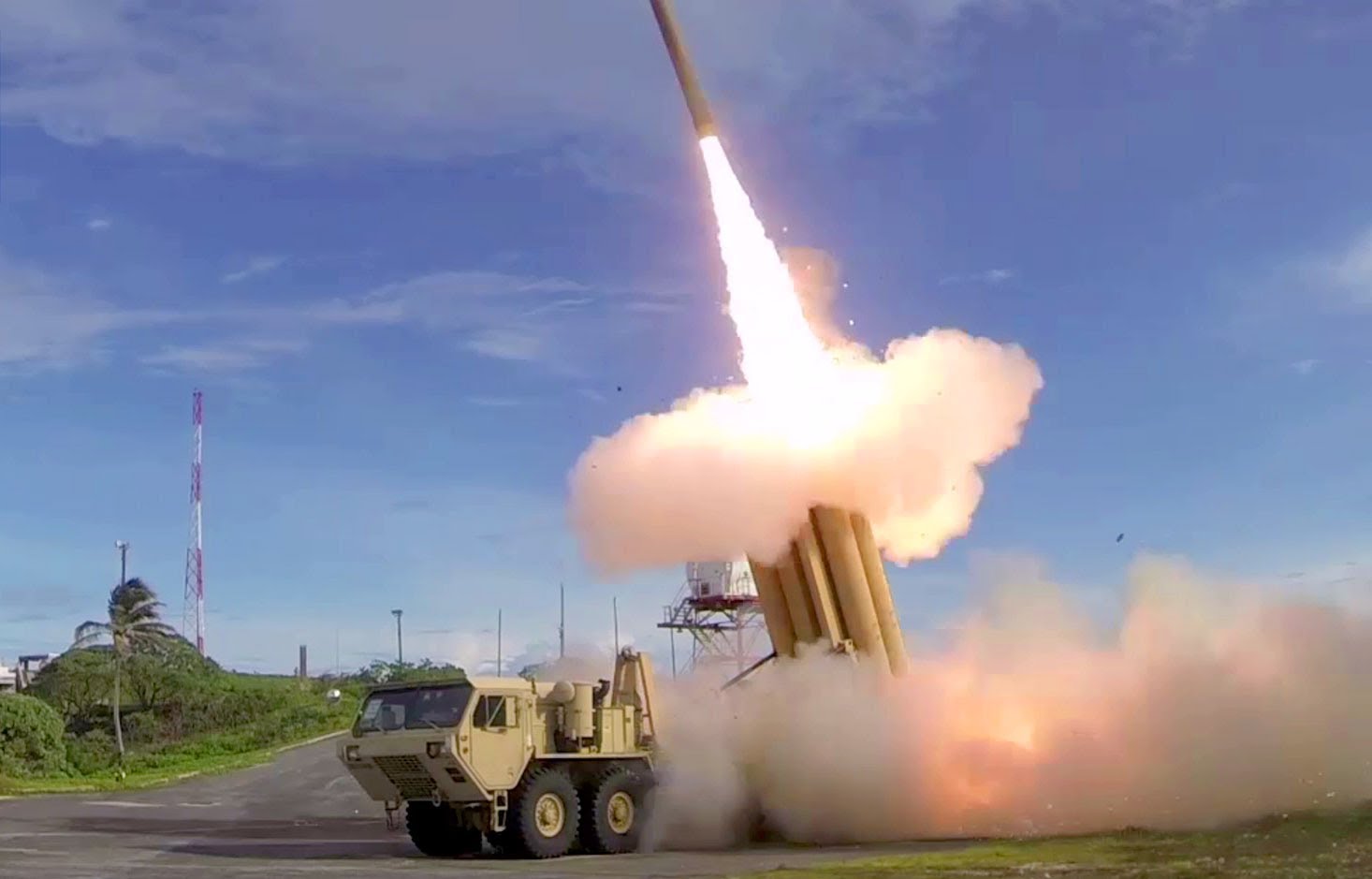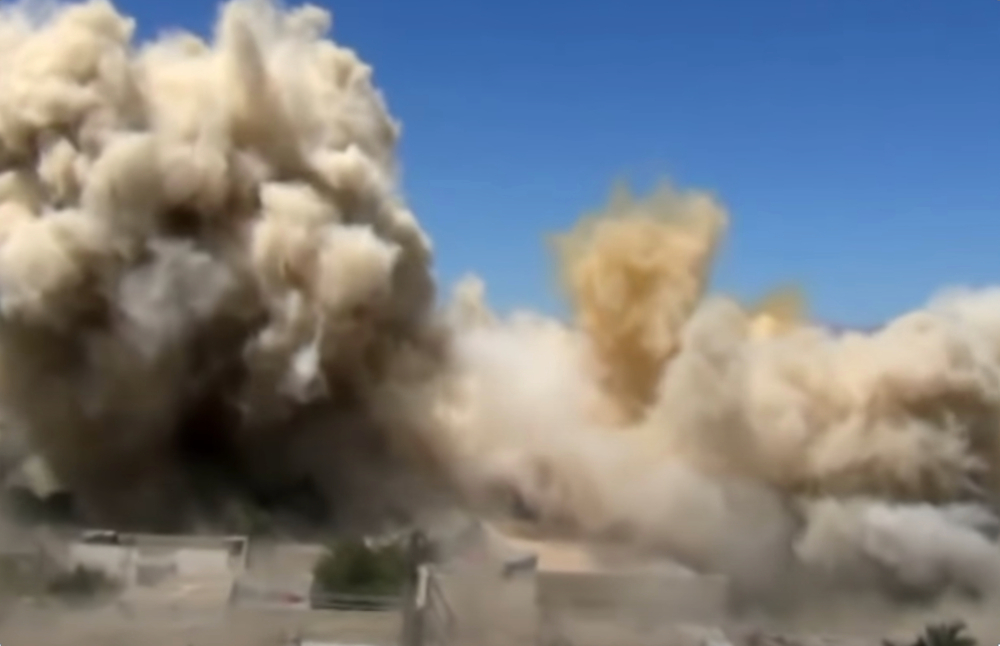ONE MORE TIME: Ukraine strikes Russia again with U.S.-made ATACMS missiles, escalating tensions
12/15/2024 / By Kevin Hughes

- Ukraine used U.S.-supplied ATACMS long-range missiles to target a military airfield in Taganrog, Russia, on Dec. 11, escalating tensions between the two countries.
- The attack injured Russian servicemen and caused damage to administrative buildings, vehicles and an industrial site in the region, with several cars burned.
- Out of six missiles, two were intercepted and destroyed. Russia’s electronic warfare capabilities disrupted the remaining four, causing them to miss the intended target, resulting in minor damage.
- The Russian Defense Ministry warned of a firm retaliation against the “Western long-range weapons” attack, stating that it will not go unanswered.
- The use of ATACMS missiles, capable of carrying nuclear payloads, has heightened international concern. Russia’s threats of nuclear retaliation have increased the risk of a broader conflict, emphasizing the need for diplomatic resolutions.
In a dramatic turn of events, Ukraine has once more launched a missile strike against Russian territory using United States-supplied ATACMS long-range systems.
The attack Wednesday, Dec. 11, targeted a military airfield in Taganrog, a southern Russian city, and further escalates tensions between the warring nations. According to the Russian Ministry of Defense (MOD), six ATACMS missiles were involved in the assault. While two of the missiles were intercepted and destroyed, the remaining four were reportedly disrupted by Russia’s electronic warfare capabilities, causing them to deviate from their intended target.
Despite the apparent defense measures, the attack resulted in minor damage, with shrapnel from falling debris hitting two administrative buildings and several vehicles on the airfield. Acting Rostov Region Gov. Yury Slyusar provided additional details, confirming that the missiles also struck an industrial site in the region, where some 15 cars in the parking lot were burned.
The incident has sparked heated reactions both in Russia and internationally, as the U.S. and Ukraine move closer to the brink of a more severe conflict. Photographs released in the aftermath of the attack show damaged buildings and scattered debris, adding a stark visual testimony to the volatile nature of the ongoing conflict. Although the scale of casualties remains unclear, it was reported that Russian servicemen sustained injuries, underscoring the human cost of the exchange.
Russian Defense Ministry vows firm retaliation
In response to this latest provocation, the MOD vowed a firm retaliation, stating: “This attack by Western long-range weapons will not go unanswered, and appropriate measures will be taken.”
This statement leaves no doubt about the implications of further military action and the potential for a broader regional confrontation. The use of ATACMS missiles, which are capable of carrying a nuclear payload, has garnered significant international attention.
Although these weapons have been employed with conventional warheads in the current conflict, their deployment marks a new phase in the battle for Ukraine, highlighting the growing influence of Western military support.
This escalation is not without precedent, however. Kyiv first began using ATACMS missiles on Russian targets on Nov. 19, following an approval by outgoing U.S. President Joe Biden. (Related: Biden’s White House admits to authorizing ATACMS strikes into Russia – they’re trying to burden Trump with WWIII, says Tucker Carlson.)
This decision has since exacerbated tensions, with Moscow warning that any further use of these weapons could prompt retaliatory strikes against NATO countries, according to their updated nuclear doctrine. Moreover, experts and global observers have increasingly warned about the potential for a wider conflict.
Russia’s declaration of readiness to respond to Western-supplied armaments with nuclear retaliation presents a highly volatile scenario, underlining the critical need for diplomatic engagement and conflict resolution.
As the situation unfolds, the international community watches with a mixture of concern and caution. The potential for broader confrontation remains a significant risk, as Ukraine continues to leverage Western military support to counter Russian forces, while Russia’s rhetoric and response grow more aggressive.
Follow WWIII.news for more news about the ongoing conflict between Russia and Ukraine.
Watch this clip about Ukraine launching a ATACMS missile deep inside Russia in Bryansk, the first time it used the U.S.-made system.
This video is from The Prisoner channel on Brighteon.com.
More related stories:
Sources include:
Submit a correction >>
Tagged Under:
ATACMS, chaos, collapse, dangerous, escalation, military tech, military technology, missile strike, missile system, missiles, national security, Russia, Russia report, Russia-Ukraine war, Ukraine, Ukraine witness, violence, weapons technology, WWIII
This article may contain statements that reflect the opinion of the author
RECENT NEWS & ARTICLES
COPYRIGHT © 2022 NuclearWar.news
All content posted on this site is protected under Free Speech. NuclearWar.news is not responsible for content written by contributing authors. The information on this site is provided for educational and entertainment purposes only. It is not intended as a substitute for professional advice of any kind. NuclearWar.news assumes no responsibility for the use or misuse of this material. All trademarks, registered trademarks and service marks mentioned on this site are the property of their respective owners.



















